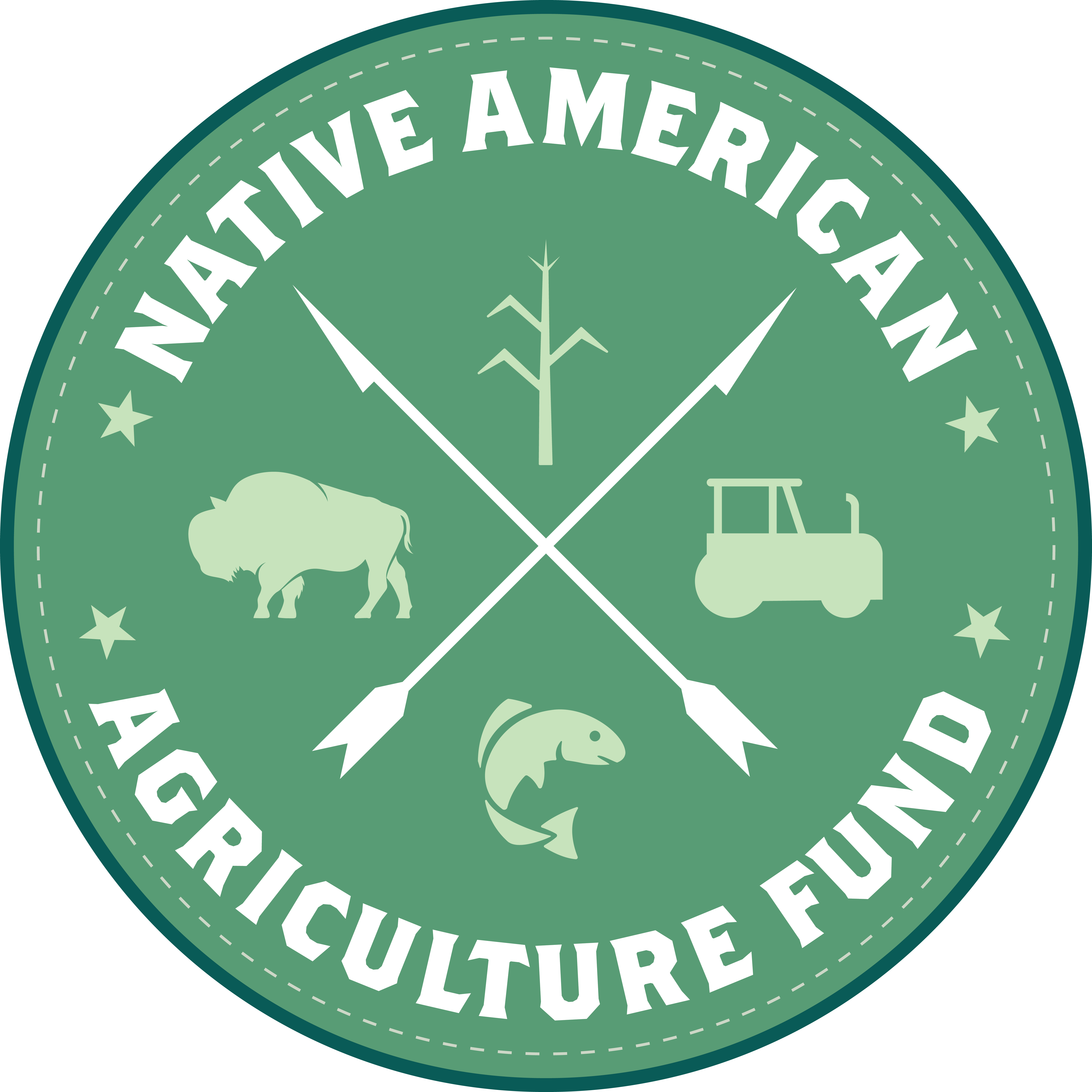[vc_row][vc_column][vc_column_text]Press release | August 13, 2018
Trustees recently met to launch the new Native American Agriculture Fund (NAAF). The NAAF is an outgrowth of the long-standing Keepseagle v. Vilsack case which spent more than 18 years in federal litigation.
History of the case
The Keepseagle case received considerable attention throughout Indian Country and the Nation from its filing in 1999, until it was finally settled by the Obama administration. The case was based on discrimination against Native American farmers and ranchers in the US Department of Agriculture (USDA) farm and ranch loan program and in the servicing of loans once received. The settlement resulted in creation of a $680 million compensation fund with an additional $80 million in debt relief. A six-month claims process resulted in approved claims for more than 3,600 Native farmers and ranchers. The settlement also created equitable relief that required USDA to create an advisory body reporting to the Secretary of USDA, enact modifications in the farm loan programs, and create technical assistance opportunities for Native producers.
After claims were paid, a cy pres fund was created for unclaimed amounts. After further court appeals, a second compensation payment to successful claimants was approved, as were $38 million in grants to non-profit organizations (referred to as the “fast track funds”) that support Native farmers and ranchers. Those payments have been completed.
In addition to the fast track funds and second compensation payment to successful claimants, the court also approved the establishment of a trust fund to distribute the remaining cy pres funds to charities that support Native farmers and ranchers. Now that all appeals in the case have been exhausted, including denial of a petition of certiorari by the U.S. Supreme Court late this spring, the charitable trust fund has now been established. A history of the litigation concerning the trust fund, the fast track funds and related issues can be found at: http://www.indianfarmclass.com/CyFunds.aspx
The charitable trust fund is called the “Native American Agriculture Fund,” and its mission is “to fund the provision of business assistance, agricultural education, technical support, and advocacy services to Native American farmers and ranchers to support and promote their continued engagement in agriculture.” The Court approved the appointment of fourteen Trustees and an Executive Director. With more than $266 million in funding, the NAAF is the largest philanthropic organization solely devoted to serving the Native American community. Those appointed to serve as Trustees and their Tribal affiliation are:
- Elsie Meeks (Oglala Lakota) – Board member of the Federal Home Loan Bank Board; former State Director, South Dakota Rural Development; rancher
- Claryca Mandan (Three Affiliated Tribes) – Lead plaintiff; Natural Resources Director, MHA; rancher
- Richard Williams (Oglala Lakota) – Consultant; former Director of the American Indian College Fund
- Porter Holder (Choctaw) – Lead plaintiff; Vice Chair, Council on Native American Farming and Ranching; rancher
- Paul Lumley (Yakama) – Executive Director, Native American Youth and Family Center
- Charles Graham (Lumbee) – State Representative, North Carolina General assembly
- Michael Roberts (Tlingit) – President and CEO, First Nations Development Institute
- Sherry Salway Black (Oglala Lakota) – Chairperson, First Peoples Fund; Board Member and Consultant to Johnson Scholarship Foundation
- Pat Gwin (Cherokee) – Sr. Director of Environmental Resources, Cherokee Nation; rancher and expert on Native American heirloom seeds
- Dr. Joe Hiller (Oglala Lakota) – Professor Emeritus, University of Arizona College of Agriculture and Life Sciences
- Jim Laducer (Turtle Mountain Band of Chippewa) – Director and majority shareholder, Turtle Mountain State Bank
- Marilyn Keepseagle (Standing Rock Sioux) – Lead Plaintiff; rancher; recently replaced by Dave Archambault, Sr. – Chairman, American Indian Business Leaders and education consultant
- Ross Racine (Blackfeet) – Executive Director, Intertribal Agriculture Council; rancher
- Monica Nuvamsa (Hopi) – Executive Director, The Hopi Foundation
Ms. Meeks was selected to serve as Chair of the Trustees board; Rick Williams was selected to serve as Vice Chair. In late July, Mrs. Keepseagle resigned from service as a Trustee, and on her strong recommendation, the Board voted to replace her with Dave Archambault, Sr. (Standing Rock Sioux). In addition to the Trustees, the court approved the appointment of Janie Simms
Hipp (Chickasaw) as Executive Director of the NAAF.
What is Ahead
The NAAF Trustees and Executive Director are engaged in strategic planning, selecting staff and advisors to carry out their required functions and all necessary activities to launch the NAAF in a thoughtful and comprehensive manner. Ensuring the funds available are used for the purposes outlined in the NAAF Trust documents is paramount, as is ensuring that the fund is managed professionally and in accordance with the law.
The court-approved trust agreement is irrevocable and cannot be changed. Among the key provisions of the trust agreement are the eligibility criteria for grantees. Eligible grantees include: tax exempt organizations described in section 501(c)(3) of the Internal Revenue Code; educational organizations; Community Development Financial Institutions that are also 501(c)(3) organizations; and instrumentalities of federal or state recognized tribes that furnish assistance designed to further Native farming and ranching, under certain conditions. In addition to meeting eligibility requirements, any grantee of NAAF will have reporting and recordkeeping requirements and comply with certain restrictions set forth in the Trust Agreement on how the funds may be used. Examples of some of the restrictions or limitations on grant purposes include: funds cannot be used for lobbying or political activity, and there can be no grants to individuals or to support litigation. Further clarification on these issues will be forthcoming from NAAF.
The Trustees intend to begin hearing from Native farmers and ranchers as soon as NAAF’s website is launched. Meetings will be scheduled to engage in a series of listening sessions, and surveys will be conducted to ensure NAAF communicates effectively with those NAAF is designed to assist and to ensure the NAAF’s grantmaking resources are invested in areas of greatest importance to Native farmers and ranchers.
For questions about the NAAF, please reach out to Executive Director Janie Hipp at 479-445-6226 or [email protected].[/vc_column_text][/vc_column][/vc_row]


